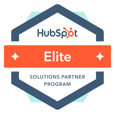How does a CRM
in a company help it grow? We show you!
CRM has become a fundamental asset for all companies that carry out a commercial activity. In addition to contributing to better internal organization and better business monitoring, CRMs actively help improve the customer experience. Say goodbye to useless Excel templates and meetings! We tell you what a CRM is and how it helps your business grow.
Surely you have wondered how to avoid the wear and tear that means unifying processes that you must execute daily to achieve the objectives you are looking for in your company.
Or are you tired of having to enter two or three tracking software to know how your sales processes are going, what marketing is doing (if you have metrics about it) or how to execute your business plans with a correct budget.
For this reason, in this article we tell you what you should know about CRM or “Customer Relationship Management”, an effective tool that helps grow and increase the productivity of your teams.
What is a CRM software?
CRM or Customer Relationship Manager software refers to various software used to facilitate access and management of relevant and accurate information about your leads, prospects or customers.
Being able to monitor the interactions with your target audience is one of the main utilities that a CRM provides.
This theory is easy to understand, but it is still not very clear to you, so:
- Los CRM registran todos los detalles de contacto (nombre, dirección de correo electrónico, número de teléfono), así como otra información de identificación que una empresa decide rastrear.
- También pueden consolidar los contactos de una empresa en una cuenta, lo que es útil para el departamento de ventas.
Learn to apply a more effective sales strategy.

How can a CRM help me in my business?
Beyond contact data, CRMs record interactions between sales reps and leads, such as emails sent, phone calls made, messages, and appointments made.
Some of them even offer the ability to track the progress of transactions and leave notes on the reasons behind the failure or success of a deal.
Contact management can be very complex, so operations CRM software can be a valuable tool for companies looking to evolve and adapt their processes.
However, it is an additional solution that must be implemented before training your employees in its use.
By achieving effective management of the information flows of your potential customers and current ones, CRMs optimize information in real time, which allows constant updating and control of a possible conversion, grouping all the data in one place. that you need to manage to develop a good experience for you, your teams, prospects, leads and customers.
How to optimize your website to generate leads?
Learn, from the hand of HubSpot, how you can optimize your website, through a CRM implementation to generate your ideal prospects:
3 advantages of implementing a CRM in your company
To know if the CRM is really worth it, you have to know these reasons that will help you understand why you need one, regardless of the industry, size or age of your company.
1. A CRM centralizes the registration of your data
Speed and simplicity are essential in the sales industry. Your sales reps are wasting precious time searching through their inbox or call log (which is most likely in Excel) for a potential customer's phone number or the date of their last invoice or contact. This method is not reliable.
If your sales reps forget to take note of an interaction with a contact, or go on vacation, the same email may be sent multiple times within your company, leading to frustration and friction among prospects or leads.
A CRM provides a complete and accurate record of all the history of interactions with prospects, accessible with a single click. Your sales reps will never have to manually rebuild their engagement logs again. manualmente sus registros de interacción nuevamente.
They can also use a CRM to check their sales pipeline, so they always know where they are in relation to their goals.
Also, an ideal CRM is one that allows sales reps to filter leads based on the ones they've been assigned to follow up with: a single page allows them to get a detailed summary of all open transactions.
Some CRMs also provide insight into each rep's sales pipeline by ranking opportunities based on their progress, simplifying the revenue forecasting process.
2. A CRM facilitates the work of decision makers
OAnother general benefit to a business is that CRMs standardize the way sales reps track their activities and deals with leads, making reporting simple.
Without a CRM, sales reps are likely to track activities in their own way, making it difficult for team managers to collect data to get a consistent picture, making it impossible to track to see improvements for the sales team .
With CRMs that standardize data entry, managers can easily combine and analyze data to monitor the overall status of their sales process.
Once the activity record is standardized, the risk of friction during the transmission of a prospect's data between one salesperson and another is reduced, or even the reassignment of contacts of a salesperson who leaves their job. Relevant information is accessible and logically recorded for the entire sales team.
3. A CRM is a flexible tool that helps leverage growth
We know you're thinking about it. “Can't I do all this in Excel? Everyone knows how to handle this data processor.”
If you have four or five customers it's easy to manually track all interactions. But think about it: do you always want to have four or five clients? Don't you want to leverage the growth of your company? Will your manager think the same when he dreams of scaling productivity and the number of sales?
You certainly know the answer. If your goal is to triple or quadruple revenue in the next few years, your sales reps will spend more and more time recording data related to leads and customers.
You'll also want to analyze the activities of your sales reps to find out which strategies or sets of touch points are delivering the best results (or even look at other metrics of your sales team's effectiveness).
Using inconsistently tracked data from multiple sources can slow down or compromise your ability to get a picture of your annual or semi-annual results.
And one final fact: a CRM improves communication between your sales team
CRMs make life easier for salespeople (and who doesn't want salespeople with more time to sell and help customers?), but they also improve communication for the entire company.
What if a sales rep is working on a deal with a lead that a coworker had talked to two years ago? Or if another takes control of the region of one of your colleagues and receives only a list of prospects in the form of an incomprehensible excel table?
With a CRM, sales reps can immediately see what has been done with a given lead and decide what to do next.
They don't have to contact their colleagues to get the interaction history, as all the necessary information is recorded in the software.
With greater clarity: CRM helps you manage customer relationships
Within the implementation of this tool, it is necessary to focus the efforts and uses of the CRM on your clients and potential clients, since easy access to information allows you to create personalized experiences that effectively solve the needs and "pains" of your leads.
However, CRMs are not exclusively developed for data management, many times we believe that this tool is used exclusively for some specific departments of a company, such as sales, but it can serve other areas.
“A CRM offers utilities within various teams in your organization; basically, a CRM could be the single source of referral for your sales, marketing, and service teams.”
Cómo ayudar a tu equipo comercial a adaptarse a las ventas digitales
An efficient and automated CRM
One of the best examples is HubSpot's CRM platform, a software that integrates marketing, sales, and customer service to fuel the growth of your company.
Hubspot has a free version and can scale as your business grows. In other words, if you are part of an SME or are its leader, you can begin to learn and become familiar with its incredible functionalities for your sales, marketing and service teams.
HubSpot's CRM platform makes it possible through the integration of these tools that drive the growth of your business:
Marketing Hub
A marketing software that will help you increase traffic, convert more visitors into customers and run complete inbound marketing campaigns.
Characteristics
-
Lead generation
-
Marketing automation
-
Analytics
Sales Hub
A sales CRM software that will allow you to collect more relevant data from your prospects, automate the most tedious tasks and close deals faster.
Characteristics
-
Advanced CRM
-
Meeting scheduling
-
Sales quotes
Service Hub
A customer service software that will allow you to get in touch with customers, exceed their expectations and turn them into promoters that boost the growth of your company.
Characteristics
-
Tickets
-
Customer feedback
-
Knowledge base
Operations Hub
Operations software that syncs apps, organizes contact data, and automates processes so all your systems and teams work better together.
Characteristics
-
Data synchronization
-
Programmable automation
-
Data Quality Automation
CMS Hub
Content management software that is flexible for marketers, powerful for developers, and offers customers a reliable and personalized experience.
Characteristics
-
Drag-and-drop editor
-
SEO Recommendations
-
Website Themes
>>Yes, it is possible to love the sales CRM!
We advise you and enable your team to sell more.<<
As companies start to grow, the systems and tools they use also start to create friction between them. Each team chooses to develop their own processes, which leads to the creation of “silos” for both processes, communication and data, and this reduces efficiency.
In order for your business to grow better, all your teams need access to a single, trusted source of reference for decision-making.
HubSpot's CRM is free to start using; By integrating these tools, it allows alignment between your company's teams, increasing productivity, providing unified tools that connect apps, organize customer data and automate business processes, increasing productivity in addition to the necessary implementation of new technologies within the marketing world.
The integration of all the tools of the HubSpot CRM platform provides a complete and unique management to grow and enhance your company.

Learn how a CRM helps your business grow
-
Automate processes: Increase team productivity.
-
Manage data: Manage your customer information in real time.
-
Customize services: Focus your efforts on the specific needs of your customers.
-
Increase sales: Generate and close more sales, increase the ROI of your company.
-
Increase productivity: Better results in less time.
-
Provide a positive customer experience: Satisfied customers, secure growth.
-
Reduce costs: Prioritize and automate processes.
-
Increase cash flow: Generate more qualified leads and increase the chances of sales.
-
Optimize the customer retention rate: Manage to solve the ailments that your customers brought.
-
Scale flexibly and safely: Boost the achievement of objectives at the necessary pace.
Finally, what should be done if the company is not prepared to handle a CRM?
We repeat it, from the start-up to the small or medium-sized company, everyone can take advantage of having a CRM (and we remind you that, in Hubspot, you can enjoy a free version).
1. Focus on your main buyer personas
To start building a sales-ready website you must start by focusing on the people you hope to attract. This involves digging deeper into your buyer personas.
Of course, you may have several different people in your company, so it's imperative that you focus on your top people and the ones that bring you the most sales.
2. Create your sitemap
Most of the time, when we're building a website, it's a redesign versus a net new design. So the next step we usually take is to examine the existing site. Evaluate which pages are generating the most traffic, because that is a sign that they are actually adding value.
That is why it is essential to prepare the website so that customers find your product or service (or a sales representative) organically and quickly. Re-evaluate if you need a website redesign and how to guide it towards growth.
3. Develop a content strategy
It's okay, you already evaluated if you needed a redesign or your website is fine. Now you must evaluate what kind of content you offer: a lot, a little, nothing? Do you have a lot of content but on different topics? Or have you never evaluated writing or offering valuable tutorials to your potential buyers?
Content outlines involve digging into your work and educating your current prospects and customers, even if it's just through social media.
These are just three steps that you can and should take, then you must measure what results you are achieving and make other additional efforts such as having a blog or rewriting all the content on your website.
Finally, a very simple question arises if you are considering adopting a CRM and establishing the best strategies: do you want to help your business grow? Do you want to scale that growth in an orderly and open way for all employees of your company, large or small?
Your ability to achieve this depends on the ability to communicate with your prospects at the perfect moments, in a personalized and automated way and provide them with relevant information at the right time. Without a world-class CRM, which supports you even when your company is taking off, it is impossible to achieve it.



